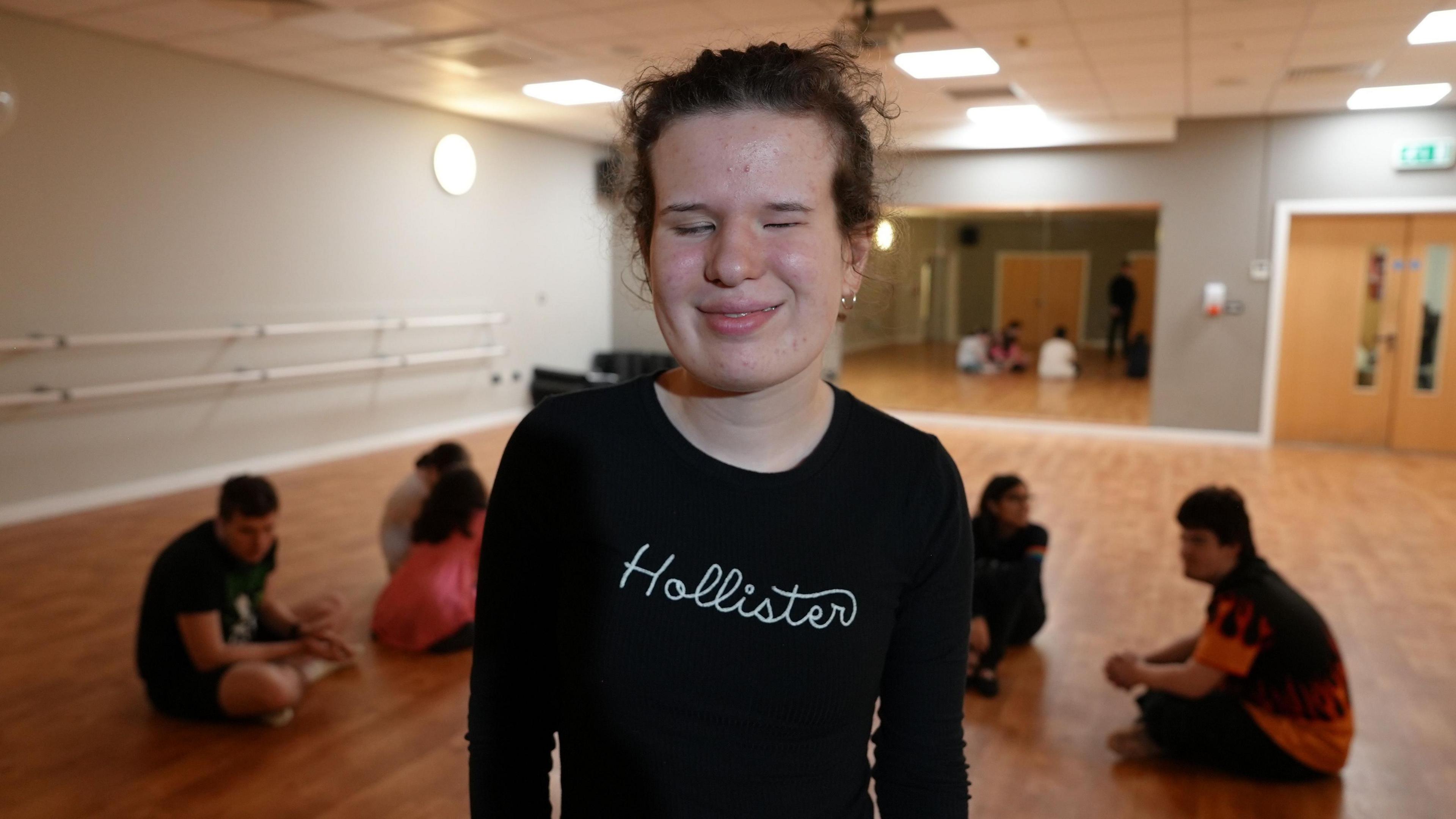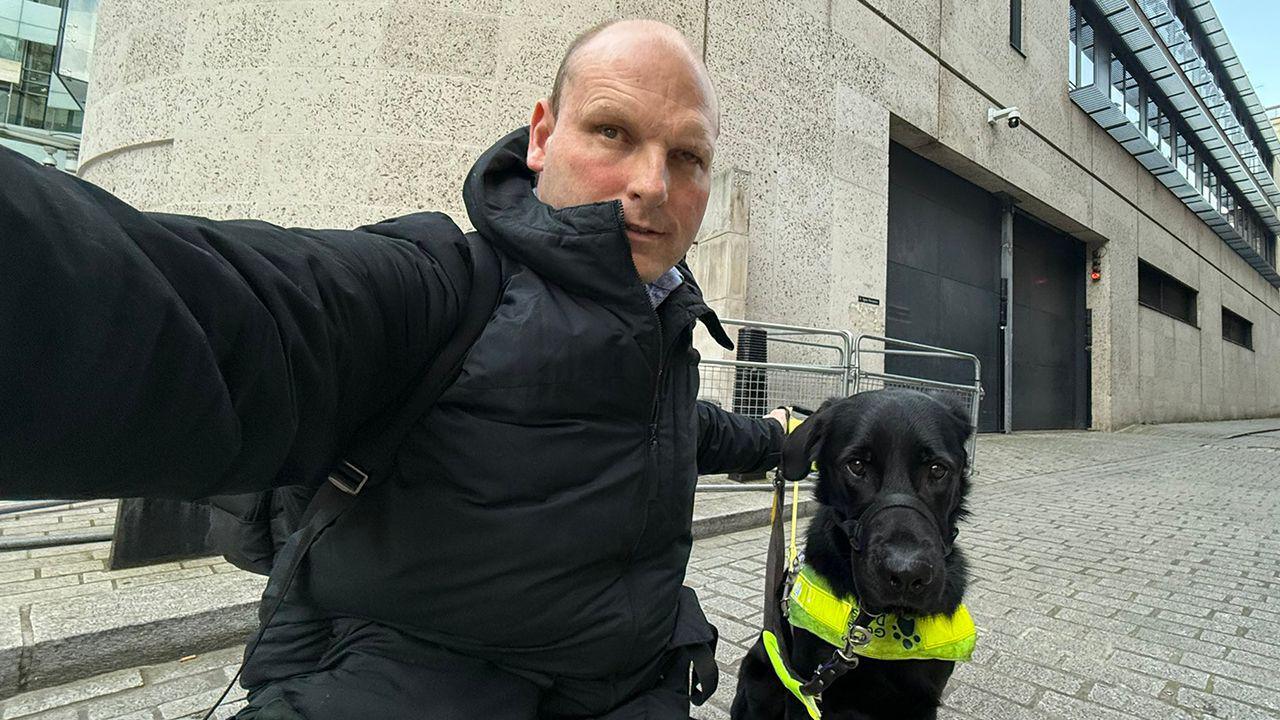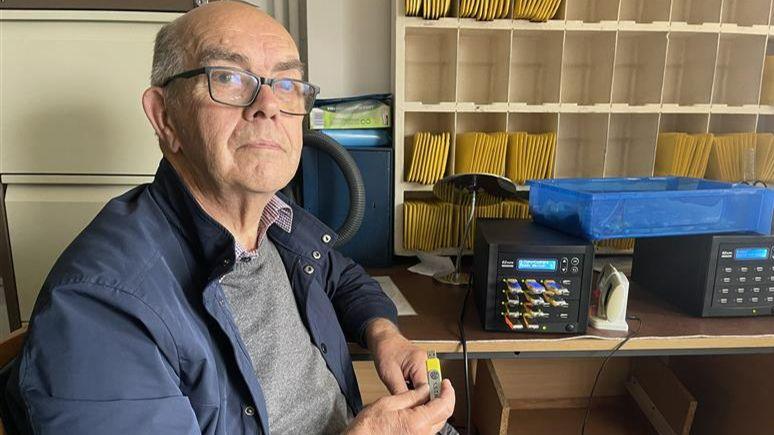'I lost my sight at 16 but education saved me'

Mohammed Ravat said he continued his studies despite his sight loss and is now on a communications internship
- Published
Mohammed Ravat was 16 when he realised he was struggling to see the whiteboard at school.
He was studying for his A-levels but said teachers did not think he was working hard enough and his grades suddenly "plummeted".
It was then that Mr Ravat, now 25, from Walsall, said he was left with a sense of "grief and isolation" after being diagnosed with an eye condition which led to him losing more of his sight.
He had to drop out of mainstream education but was offered a place at the Royal National College For The Blind (RNC) in Hereford, where he continued to pursue his passion for graphic design.
Mr Ravat has gone on to secure a communications internship at the Beacon Centre in Wolverhampton, a charity which supports people living with sight conditions.
He said the news of his condition was "hard to take" as it was not just about sight loss, it "impacts everything you do".
BBC Radio WM: Mr Ravat spoke about what he called the grieving process you go through on losing your sight
Earlier this week, Sir Elton John revealed he was unable to watch a stage show that he wrote the music for, due to losing his eyesight.
Mr Ravat said it was important to talk about the "grief" that those who are experiencing sight loss go through.
"I was always creative and that was hard to lose because I wasn't able to do it until a year or two ago when I went to the specialist college," he said.
His education at the RNC allowed him to continue his passion and study graphic design.
The 25-year-old praised the number of gadgets made available to him, including magnified screens on computers, and encouraged others in a similar situation to take the time to look for the support they need.
"It's not just the sight loss, it impacts everything," he said.
"I had to learn how to walk with a long cane, that was quite nerve-wracking and difficult. "
Mr Ravat added that his education had "empowered" him as his disability led him to move away from home to study and helped him learn to cook and clean at a young age.
The support from his family continues to help him through his "sight loss journey" and he credited their positivity to his great-uncle from South Africa, who went blind after contracting meningitis as an infant.
He said his uncle, who went on to be constitutional judge and was appointed to the bench by Nelson Mandela, continued to inspire him to succeed in his career.
Get in touch
Tell us which stories we should cover in Birmingham and the Black Country
Follow BBC Birmingham on BBC Sounds, Facebook, external, X, external and Instagram, external.
- Published30 November 2024

- Published24 November 2024

- Published21 November 2024
